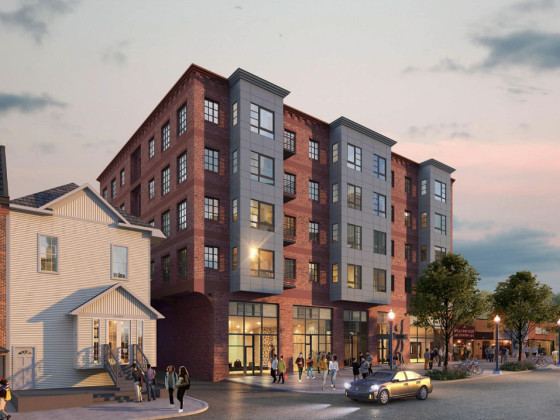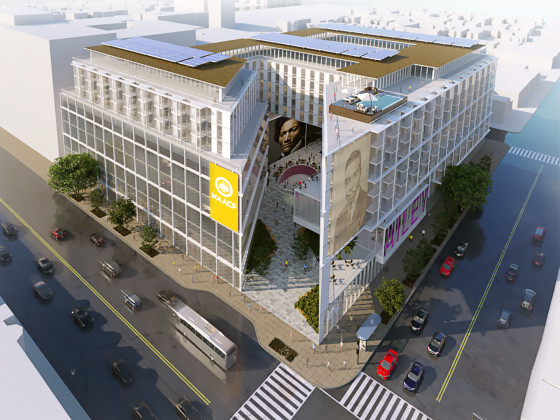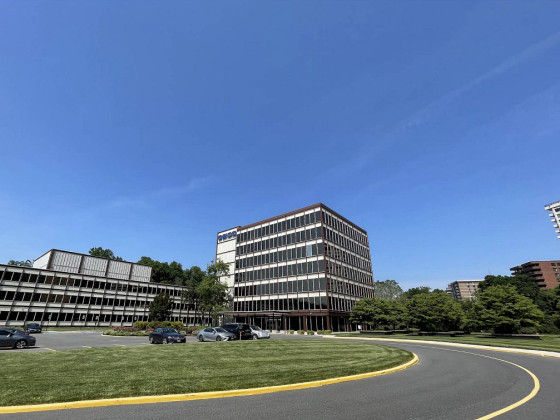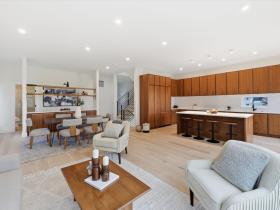What's Hot: A First Look At Friendship Commons, The Big Plans To Redevelop Former GEICO Headquarters
 How to Obtain a Basic Business License For Your DC Rental
How to Obtain a Basic Business License For Your DC Rental
✉️ Want to forward this article? Click here.
This article is being re-published with updated links.
Being a landlord in DC involves a bit of paperwork, including obtaining a Basic Business License (BBL). Whether you are renting out your English basement, a condo or a four-unit apartment building, you will need to get a BBL.
The process differs depending on how many units you are renting out (single-family rentals, two-family rentals and an apartment with three or more units) but the basic steps remain the same. All potential landlords should check the zoning map to make sure they are compliant with current zoning regulations and don’t owe more than $100 to the District of Columbia. Once those things have been cleared, here is the process:
story continues below
loading...story continues above
1. Most, but not all, categories require a Certificate of Occupancy which can be obtained from DC's Department of Buildings.
2. Register your business with the Office of Tax and Revenue. This can be done here.
3. Fill out the Basic Business License online.
4. Register to get a housing inspection to make sure the unit(s) is up to code. Though your BBL is in hand at this point, if you don’t get an inspection within 45 days, it may be revoked.
5. Next, you must file with the Department of Housing and Community Development (DCHCD), either to register as a rent-controlled unit or to ask for an exemption.
Here’s where UrbanTurf discovered one of the most interesting parts of the process: in part 7 of the application, DCHCD asks applicants to report the rate of return for the housing accommodation. Knowing the rate of return on the property helps determine a fair rent for the unit. DC wants to make sure that any increases in rent on rent-controlled apartments are not generating more than a 12 percent rate of return. DCHCD references a formula that can be used to determine this, which can be found here.
So, what is meant by rate of return? Here is the formula that is used to determine that number:
Take the maximum possible rental income in a given year, and subtract the following: the annual mortgage principal payments, maintenance costs, management fees (if applicable), taxes, depreciation as seen in tax assessments, interest payments, and a few other smaller costs (again, click here to see the comprehensive formula). Take the resulting number — the net income — and divide it by the equity of your home. This determines the rate of return.
6. Once all these forms are submitted and your inspection is complete, congratulations! You have a legitimate rental unit in the eyes of the District of Columbia.
See other articles related to: basic business license, basic business license dc
This article originally published at https://dc.urbanturf.com/articles/blog/how-to-obtain-a-basic-business-license-for-your-dc-rental/15811.
Most Popular... This Week • Last 30 Days • Ever

The plan to replace the longtime home of Dance Loft on 14th Street with a mixed-use ... read »

Today, UrbanTurf is taking a look at the tax benefits associated with buying a home t... read »

On Thursday night, developer EYA outlined its plans at a community meeting for the 26... read »

Only a few large developments are still in the works along 14th Street, a corridor th... read »

EYA and JM Zell Partners have plans for 184 townhomes and 336 apartments spread acros... read »
- Plans For 101 Apartments, New Dance Loft On 14th Street To Be Delayed
- A Look At The Tax Benefits of Buying a Home Through a Trust
- A First Look At Friendship Commons, The Big Plans To Redevelop Former GEICO Headquarters
- Church Street, U Street + Reeves: A Look At The 14th Street Development Pipeline
- 520 Residences Planned For Former GEICO Campus In Friendship Heights
DC Real Estate Guides
Short guides to navigating the DC-area real estate market
We've collected all our helpful guides for buying, selling and renting in and around Washington, DC in one place. Start browsing below!
First-Timer Primers
Intro guides for first-time home buyers
Unique Spaces
Awesome and unusual real estate from across the DC Metro













